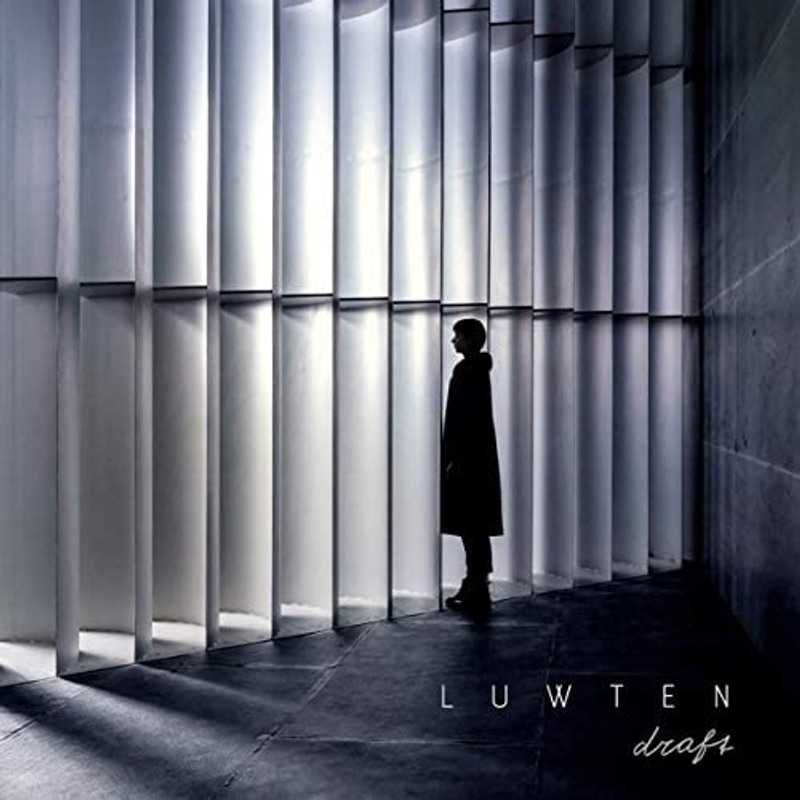
If you choose an unusual name it will stick with you throughout your career, as Amsterdam-based songwriter Tessa Douwstra is finding out.
However, if you’re clever about it, it can work in your favour. The literal meaning of Luwten is ‘a place without wind’, which reflects her second album more concisely than most reviews (including this one) will. There is no tumult or chaos within; Draft is a calm and ordered piece of work.
The looped staccato vocal clip which opens the album nags away throughout The Thought Of You, as if to reflect the anxiety and increased heart rate when a certain someone embeds themselves in your psyche.
The song is built around a sole acoustic guitar line, strummed sparingly with a distant (and therefore heavenly) soulful chorus that swells and deflates accordingly. ‘These signals in my brain, they make me think of you,’ Douwstra ruminates, fully self-aware but lost to them, nonetheless.
This pragmatic approach is the lyrical theme of the album, as throughout she is trying to make sense of human interaction and the accompanying feelings.
The creeping, quasi-trip-hop Don’t Be A Stranger follows and is in contrast to the opener; we may have been welcomed into this world, but now we have to deal with it. Feather-light drums, disembodied chimes and a deep bassline create a disconcerting environment which is fortunately offset by Douwstra’s imploring yet urgent vocal delivery.
Similarly, Full Well features subtle synths which percolate beneath the song to add a sense of dread alongside a choir of children, while on Airport her voice nearly breaks as it balances on the higher end of the vocal scale.
While it may be uncomfortable listening at times, Draft is primarily a pop album. Control takes us by the hand to the dancefloor, albeit to sway gently rather than throw our hands up in the air. The delivery of the verse over wobbly keys is Beyonce-like, snappy and matter-of-fact against a mid-tempo groove. Despite its rigidity, the lyrics ponder that to lose control is to learn about one’s self.
Later on, the bouncing but delicate Stopwatch attempts the same intensity but is perhaps too delicate to be entirely immersive, while the glacial groove of Standstill could either make you dance or cry, depending on the mood when listening.
Yet it’s on the slower numbers where the calmness prevails and the music breathes; the title-track reflects the dichotomy at the heart of the album (‘I want to be alone/I want to hear you coming home’), proposing that the idea of solitude is good if it’s in preparation for company.
Douwstra’s double-tracked and auto-tuned vocals focus on the former to create aching melancholy akin to Bon Iver’s early work. The jerky, tick-tock of Sleeveless is sparser still as the acoustic guitar that carries the song is played sparingly while an uninvited cowbell and pointed electric percussion bristle beneath the surface.
It’s hard to see how proceedings can get any more calming and, while Douwstra’s voice goes right up the mix on closer Call Me In, accompanied only by the acoustic and background of earthy sounds (birds, traffic), she manages to outdo herself by creating distance yet warmth for one last time.
Despite its fragility and a sparseness that makes The xx sound fussy, Draft is an album that reveals its secrets at its own pace, even though the subtlety makes it almost transparent at points. A cerebral, mature and mellow pop album best played at the times when your brain needs space to collate itself, rather than besieging the ears.
Isolation has never sounded so warm.



